The River is a american film of genre Documentary directed by Pare Lorentz released in USA on 4 february 1938 with Thomas Chalmers
The River (1938)
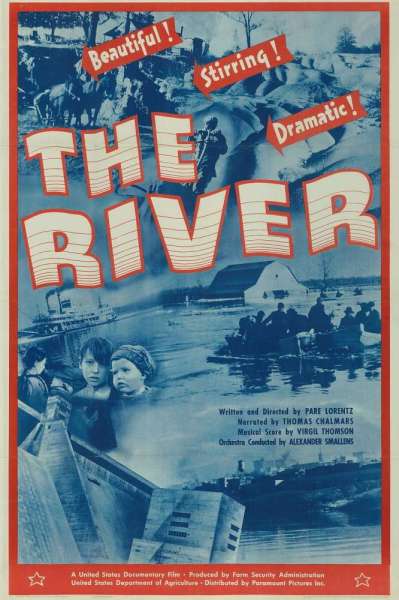
If you like this film, let us know!
Released in USA 4 february 1938
Length 31minutes
Directed by Pare Lorentz
OriginUSA
Genres Documentary
Themes Environmental films, Documentary films about business, Documentary films about environmental issues, Documentary films about historical events, Disaster films
Rating63%










The River is a 1938 short documentary film which shows the importance of the Mississippi River to the United States, and how farming and timber practices had caused topsoil to be swept down the river and into the Gulf of Mexico, leading to catastrophic floods and impoverishing farmers. It ends by briefly describing how the Tennessee Valley Authority project was beginning to reverse these problems.
It was written and directed by Pare Lorentz and, like Lorentz's earlier documentary The Plow That Broke the Plains, was also selected for preservation in the United States National Film Registry by the Library of Congress as being "culturally, historically, or aesthetically significant", going into the registry in 1990. The film won the "best documentary" category at the 1938 Venice International Film Festival.
Both films have notable scores by Virgil Thomson that are still heard as concert suites. The film was narrated by the American baritone Thomas Hardie Chalmers. Thomson's score also references his concert work Symphony on a Hymn Tune. The River later served as the score for the 1983 TV movie The Day After.
The two films were sponsored by the U.S. government and specifically the Resettlement Administration (RA) to raise awareness about the New Deal. The RA was folded into the Farm Security Administration in 1937, so The River was officially an FSA production.
There is also a companion book, The River The text was nominated for the Pulitzer Prize in poetry in that year.
Actors
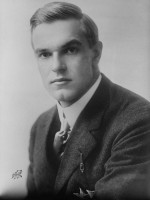
Thomas Chalmers
(Narrator (Voice))
Comments
Leave comment :
Suggestions of similar film to The River
There are 4 films with the same actors, 2 films with the same director, 8855 with the same cinematographic genres, 4424 films with the same themes (including 2 films with the same 5 themes than The River), to have finally 70 suggestions of similar films.If you liked The River, you will probably like those similar films :
 , 25minutes
, 25minutesDirected by Pare Lorentz
Origin USA
Genres Documentary
Themes Environmental films, Documentary films about business, Documentary films about environmental issues
Actors Thomas Chalmers
Rating61%






Sludge (2005)
Origin USA
Genres Documentary
Themes Environmental films, Documentary films about business, Documentary films about environmental issues, Documentary films about historical events, Documentary films about technology, Disaster films
 , 40minutes
, 40minutesOrigin USA
Genres Documentary
Themes Environmental films, Documentary films about business, Documentary films about environmental issues, Documentary films about historical events, Documentary films about technology, Disaster films
Rating57%





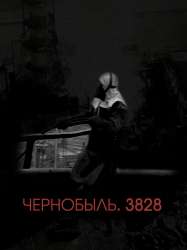
Chernobyl.3828 (2011)
, 30minutesOrigin Ukraine
Genres Documentary, Historical
Themes Environmental films, Documentary films about environmental issues, Documentary films about historical events, Documentary films about nuclear technology, Documentary films about technology, Disaster films
Rating74%





Twenty-five years have passed since Valeriy Starodumov worked as a dosimeter scout in September 1986. Valeriy worked at the epicenter of the explosion, the reactor's operation area, which was the most radioactive part of the site. The protagonist, a direct participant in the operation, went to the roof himself and brought people there after a failed attempt to clear the area with robots. At the government level, it was decided to assign soldiers and cadets of military schools to the task of cleaning the roofs. Unique pictures of the events of 1986 are widely used in the film. "Chernobyl.3828" is dedicated to people who saved the world from the radioactive contamination at the cost of their health and life.

Henry Browne, Farmer (1942)
, 9minutesOrigin USA
Genres Documentary
Themes Environmental films, Documentary films about business, Documentary films about environmental issues, Documentary films about war, Documentary films about historical events, Political films, Documentary films about World War II
Actors Canada Lee
Rating50%





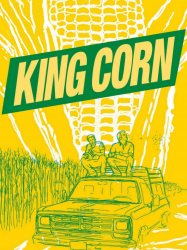
King Corn (2007)
, 1h28Origin USA
Genres Documentary
Themes Environmental films, Documentary films about business, Documentary films about environmental issues, Documentary films about historical events, Documentary films about politics, Political films
Actors Ian Cheney, Curtis Ellis
Rating69%





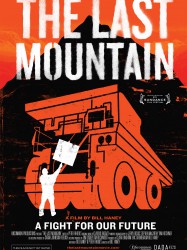
The Last Mountain (2011)
, 1h35Origin USA
Genres Documentary
Themes Environmental films, Documentary films about business, Documentary films about environmental issues, Documentary films about historical events, Documentary films about politics, Documentary films about technology, Political films
Rating76%





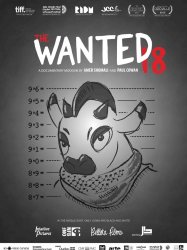
The Wanted 18 (2014)
, 1h15Origin Canada
Genres Documentary, Animation
Themes Films set in Africa, Films about animals, Environmental films, Films about religion, Films about the labor movement, Documentary films about business, Documentary films about law, Documentary films about environmental issues, Documentary films about war, Documentary films about historical events, Documentary films about politics, Documentary films about religion, Documentaire sur le monde du travail, Films about cows, Political films, Films about Jews and Judaism, Mise en scène d'un mammifère
Rating71%





L'œuvre présente les efforts des Palestiniens habitant la ville et la région de Beit Sahour, en Cisjordanie, pour démarrer une petite industrie laitière locale au cours de la première Intifada, en cachant un troupeau de dix-huit vaches laitières aux forces de sécurité israéliennes qui considérait la production de laitages comme une menace pour la sécurité nationale d'Israël.

Genres Documentary
Themes Environmental films, Seafaring films, Transport films, Documentary films about environmental issues, Documentary films about historical events, Documentary films about nuclear technology, Documentary films about technology, Disaster films, Films about earthquakes
Rating67%





Surviving the Tsunami brings together social, environmental, and personal perspectives of the national catastrophe of the Fukushima nuclear meltdown. In the documentary, Kyoko Miyake travels back to her hometown in Namie, Fukushima, to revisit her old life and assess the trauma still lingering from the disaster. She revisits Namie, her mother's hometown and meets the people who depended on the success of the nuclear plant for their livelihood. The film also follows Bunsei Watanabe and Kyoko Miyake's Aunt Kuniko, two people who hope for the rejuvenation of Namie, despite the disaster that has occurred. Despite having lost family, friends, and jobs due to the meltdown and subsequent fear of the contamination zone, these two individuals are determined to rebuild their towns and neighborhoods and bring back the sense of community they once had. The film follows the residents of Namie, with emphasis on the experiences of Aunt Kuniko, as they come to terms with the reality of living in or near the "radiation zone" left in the wake the plant's nuclear meltdown. Surviving the Tsunami offers a different perspective on Japanese culture, national identity, human adaption, and global nuclear energy and proliferation.
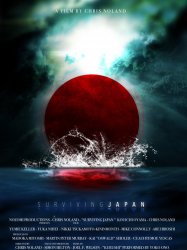
3.11: Surviving Japan (2013)
, 1h30Directed by Simon Hilton
Genres Documentary
Themes Environmental films, Seafaring films, Transport films, Documentary films about environmental issues, Documentary films about historical events, Documentary films about nuclear technology, Documentary films about technology, Disaster films, Films about earthquakes
Rating82%





The film spans from March 11, 2001 to September 19, 2011, starting with Noland's own experience in the Tōhoku Earthquake and tsunami, Fukushima Daiichi nuclear disaster followed by volunteer activities in Ofunato
 Connection
Connection